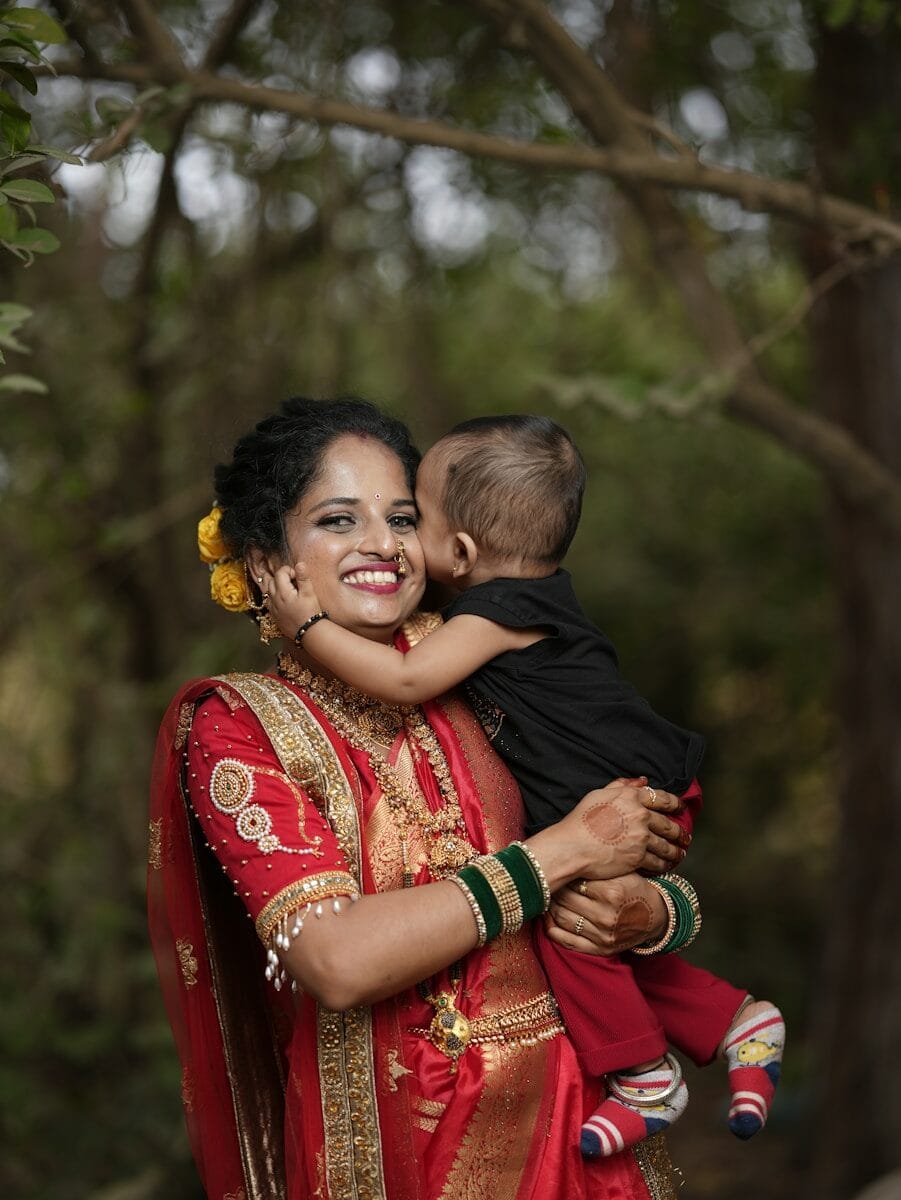A four-year-old girl with silent eyes and a world locked inside her sat cross-legged on the ground outside her home. Her mother, Sushmita, gently placed the laminated mango flashcard in her lap — faded from countless attempts to coax a single word. In India, children who couldn’t express themselves were labelled ‘slow’, ‘stubborn’ or worse. The blame always fell on the mothers.
This scene captures the daily reality for millions of Indian mothers whose children struggle with autism and developmental delays. Something fundamental is shifting in how families receive support, moving away from isolation and blame toward a framework that recognises mothers as partners, not problems.
The Weight of Blame
Traditional Indian family structures place the burden of caregiving squarely on mothers’ shoulders, and when children don’t develop typically, the blame follows. Research published in medical journals reveals that mothers of autistic children in India face significant stigma, with their child’s condition often attributed to bad parenting.
The statistics paint a concerning picture. With approximately 3% of India’s population estimated to be on the autism spectrum, that translates to millions of families. Yet over 90% of neurodevelopmental issues remain undiagnosed, leaving families to navigate misunderstanding and social exclusion alone.
Cultural barriers compound the problem. Low awareness and traditional beliefs delay diagnosis and help-seeking behaviour. Many families hide their child’s condition to avoid ostracism, while mothers experience higher levels of affiliate stigma compared to fathers, contributing to increased stress and clinical depression. The emotional journey of receiving an autism diagnosis can leave mothers feeling isolated and overwhelmed.
Not Just Another Therapy
Into this world of blame and isolation steps Dr Sreeja Reddy Saripalli, whose approach began not with a clinical plan but with lived experience. ‘It did not begin with a plan. It began with a mother,’ she explains, reflecting on the founding of Pinnacle Blooms Network.
As a mother of an autistic child herself, Dr Saripalli understood the daily challenges that research confirms: mothers taking on multiple, exhausting roles as caregiver, therapist and advocate. Her response was to create a framework that doesn’t just treat the child but supports the entire family system, with mothers at its heart.
The results speak to more than clinical success. With over 19 million therapy sessions delivered and a 97% measured improvement rate, Pinnacle Blooms Network has demonstrated that when mothers are empowered rather than blamed, outcomes change dramatically. These aren’t just numbers — they represent families like Sushmita’s finding hope where there was once only worry.
Women Leading for Women
This approach differs because it recognises that autism support isn’t just about clinical interventions — it’s about changing the daily experience of families. The network’s all-women leadership team understands the unique pressures Indian mothers face because they’ve lived them.
This ‘mother-powered’ therapy model doesn’t sideline mothers as passive recipients of expert advice. Instead, it positions them as knowledgeable partners who understand their children better than anyone else. Research on family-centred approaches confirms that when mothers are supported and empowered, both maternal mental health and child outcomes improve significantly.
The framework includes patented tools like AbilityScore and TherapeuticAI, but the real breakthrough lies in how these technologies serve families rather than replace human connection. Child-led therapy approaches show that mothers learn to use these tools as part of their daily interactions, making therapy an extension of natural caregiving rather than a separate, clinical process.
Daily Support That Actually Works
For families participating in this model, the difference shows up in everyday moments. Instead of feeling isolated and blamed when their child doesn’t respond typically, mothers receive practical support and validation. The therapy becomes part of family life rather than an additional burden.
The approach adapts to local languages and family traditions, acknowledging that effective support must fit into real family contexts. With protocols available in over 133 languages, the model recognises that autism support cannot be one-size-fits-all.
A Community, Not a Clinic
Perhaps most significantly, this framework is creating communities where none existed before. Mothers who once felt isolated by their child’s diagnosis now find themselves part of a network that validates their experiences and builds on their expertise. Stories of mothers embracing neurodiversity show how crucial this community support can be.
The success has caught international attention. Global institutions including WHO-SEARO, UNICEF and public health ministries in the UK, UAE and Africa are studying this Indian-origin model for potential adaptation in their own contexts.
‘You can measure science in numbers. But you can only measure trust in the lives it changes,’ notes Dr Saripalli. This philosophy recognises that behind every statistic is a family seeking not just clinical improvement but dignity and support.
Understanding the Scale
The scope of autism in India remains largely hidden. Recent studies estimate autism prevalence at about one in 100 children under 10 years, with diagnosis rates improving in urban areas but remaining low overall. Many children, especially in rural and underserved regions, never receive proper assessment due to stigma, lack of specialists and cultural barriers.
For mothers traditionally bearing the care burden alone, research emphasises the need for intervention services that address the realities and stressors they face. Family-centred autism therapy that accounts for these workloads can help reduce isolation and improve maternal adaptation and wellbeing.
The framework’s expansion to over 70 centres with 1,600 trained experts represents more than organisational growth — it’s infrastructure for changing how families experience autism support across India.
From Burden to Partnership
This model represents a fundamental change from viewing mothers as potential causes of their children’s struggles to recognising them as essential partners in solutions. Attachment-based parent interventions specifically targeted at caregivers show measurable benefits including improvements in maternal mental health, increased parental confidence and better behavioural outcomes for children.
The approach acknowledges what mothers have always known — they understand their children’s unique communication styles and needs better than anyone else. Rather than feeling blamed for their child’s differences, mothers become central to crafting solutions that work for their specific family situation. Modern approaches to parenting challenges increasingly recognise this expertise.
As the framework gains recognition internationally, it demonstrates how solutions developed in response to local challenges can offer insights globally. The emphasis on cultural adaptation and family-centred care provides a template for autism support that respects diverse family structures and traditions.
Back to Sushmita and her daughter. That faded mango flashcard hasn’t disappeared, but it’s no longer a symbol of failure or frustration. In a framework that recognises mothers as partners rather than problems, it’s become part of a conversation — one small piece of a larger support system that finally acknowledges what mothers have always deserved: respect, resources and the recognition that they’ve been experts on their children all along.






